Creating an environment in which girls feel empowered to move
SportAus defines Physical literacy as lifelong holistic learning acquired and applied in movement and physical activity contexts. A physically literate person can draw on their integrated physical, psychological, social and cognitive capabilities to support health-promoting and fulfilling movement and physical activity throughout their lifespan.
For girls, lifelong participation in sport and physical activity is less likely than for males, and there are a number of factors for this, including unhappiness with body image, low self-confidence and dislike of being watched. For females across all life stages, VICHealth research found that fear of judgment, whether this is about appearance or ability, was a significant factor in stopping participation in physical activities.
A positive school culture with physical activity embedded in its values
At Lauriston, our School Value of Engagement in Life encourages all of our students to participate in a wide range of co-curricular activities which foster self-confidence, social interactions and an enjoyment in being physically active, whether this is through sport, recreational activities, co-curricular activities such as rowing and snowsports, Compass and Duke of Edinburgh or our Howqua program.
Fostering early positive experiences with physical activity, giving attention to having fun with friends, improving confidence and the promotion of a positive body image, all help to promote lifelong engagement in physical activities.
Our decision to make sport compulsory up to Year 10 was based on a large body of research that highlights the links between physical activity for young people and improved health outcomes, psychological wellbeing, cognitive development and academic performance. Through participation in physical activities as young people, our students will develop a mindset to continue throughout the remainder of their lives.
Why is physical activity good for growing brains?
It builds their cognitive functioning:
- Physical activity before, during and after school will boost academic performance
- A single session of moderate physical activity will immediately boost brain function, cognition and academic performance
- Brain power and academic performance are boosted when children master fundamental movement skills
It nurtures their engagement, motivation and psychological wellbeing:
- Physical activity boosts self-esteem
- Nurture relationships with peers, parents and other important adults in their lives, such as teachers and coaches
- Regular and organized physical activity training helps to build important live skills (interpersonal, self-regulation) and core values (respect, social responsibility)
It supports a culture of inclusiveness:
- Activities that are sensitive to culture and context create opportunities for social inclusion.
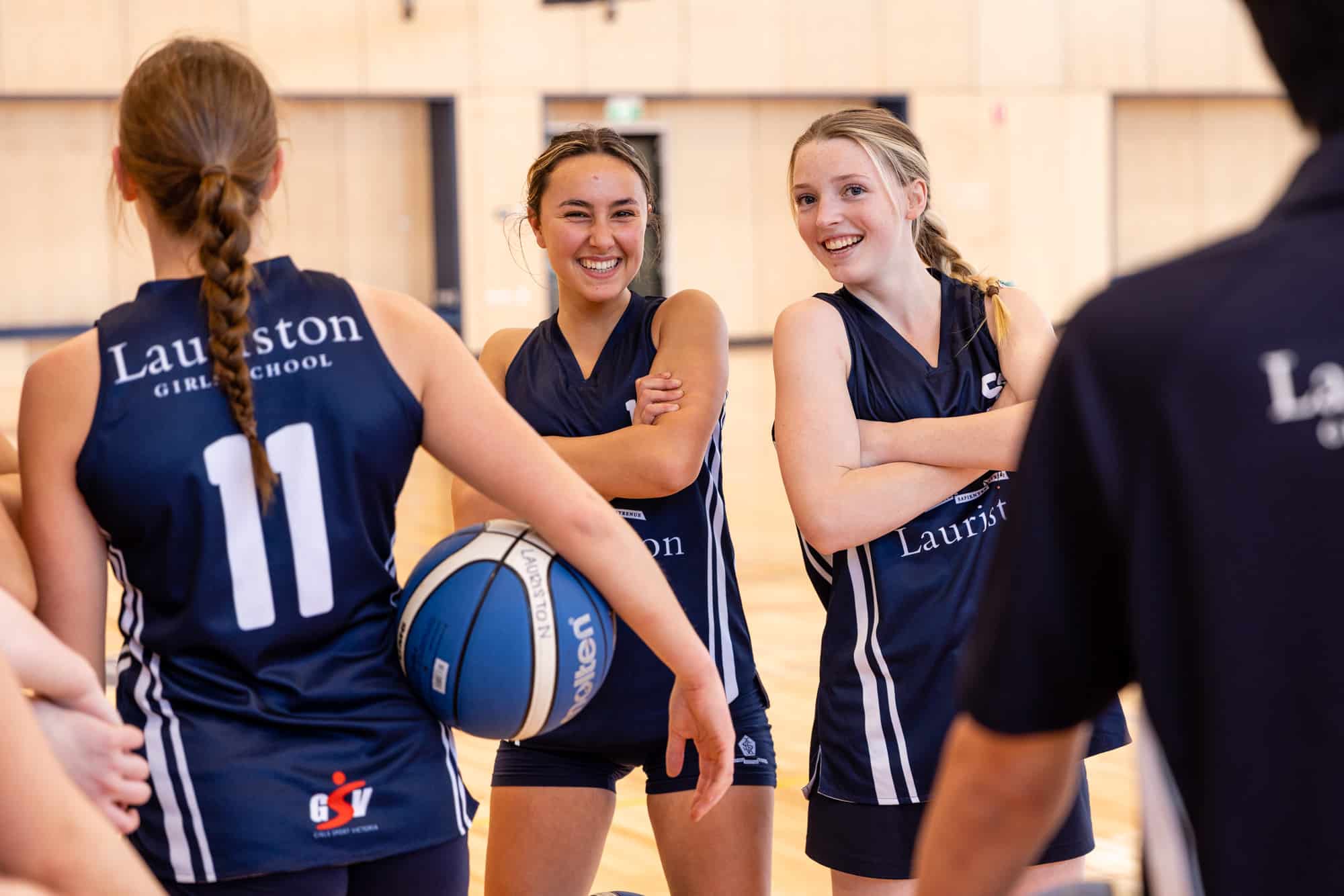
Diverse offering within the physical education and co-curricular curriculum
Knowing that we must encourage our girls from a young age to be active and understand that physical activity must be part of their lives, we offer a broad variety of sports and physical activities that cater for diverse interests and skill levels. From the early years of primary school, our aim is firstly to establish fundamental movement skills and game sense which are further developed through Physical Education lessons and participation in Years 5 and 6 in School Sport Victoria (SSV) competitions. From Year 7, our students participate in the Girls’ Sport Victoria (GSV) competition which offers a variety of team sports each term, including swimming, AFL, basketball, netball, volleyball, tennis and the opportunity to compete at major carnivals for swimming, cross country and athletics. SSV and GSV team sport is complimented by recreational activities offered at school which include strength and conditioning, yoga, badminton, table tennis and more. We are keen for our students to participate in co-curricular activities such as rowing, snowsports, triathlon and golf. We encourage all girls to participate, regardless of their skill base. We enable girls who may not have been physically active in their lives to establish fundamental skills which will allow them to participate in team sports and feel confident in their ability to do so.
Our Lauriston Netball and Basketball Clubs and year-round athletics program further enhance the physical activity options for our students. The Netball and Basketball Clubs compete over the weekend and our students can play against other clubs in the area. Our Run Challenge provides a wonderful foundation for Cross Country, training for athletics and preparing for the Howqua year.
We encourage participation in the Compass Program, in the primary years, the Duke of Edinburgh program in the senior years and both the Lauriston Run and Swim Challenges to firstly encourage our students to consider physical activity beyond that of playing in a team sport and to support them develop lifelong skills and interests. Through the Compass and Duke of Edinburgh programs, our students can include the sports they play as they complete the requirements for each program, and they can also include outdoor hikes and activities which open the way for the Howqua Program and demonstrate that being physically active also means spending time in the natural environment and learning different skills linked to hiking, navigation and camping.
A scaffolded and incremental approach to building physical capability and mindset
We take a scaffolded and incremental approach to building physical literacy and a positive mindset towards physical activities. Our School Sport Strategic Plan highlights our priority goals and demonstrates the scaffolded nature of skill development. The Health and Physical Education curriculum is scaffolded with a view to building upon fundamental movement and games-sense skills.
In the Senior School, here are just a few examples of the many ways in which we encourage students to get involved:
- Facilitating year-round programs, such as swimming, cross country, track and field, to students of any age, fitness and ability
- Offering students the opportunity to participate in competitions outside of the GSV / SSV setting to build confidence, for example, Athletics Victoria and Swimming Victoria events
- Regularly celebrating achievements through the annual Celebration of Sport event, regular news articles to the community, team meetings and assemblies.
Our Howqua Program is scaffolded for our students, with activities such as running, hiking, mountain bike riding, canoeing and snow skiing all beginning with introductory activities and building as the capability of each student grows. For example, trail running begins at two kilometres around the Howqua Ring Road, introductory mountain bike riding is held during Term 1 and during the Winter Program, the students will be working within groups at their level of ability. The focus is on incremental development which enables each individual to understand that she can improve throughout each activity.
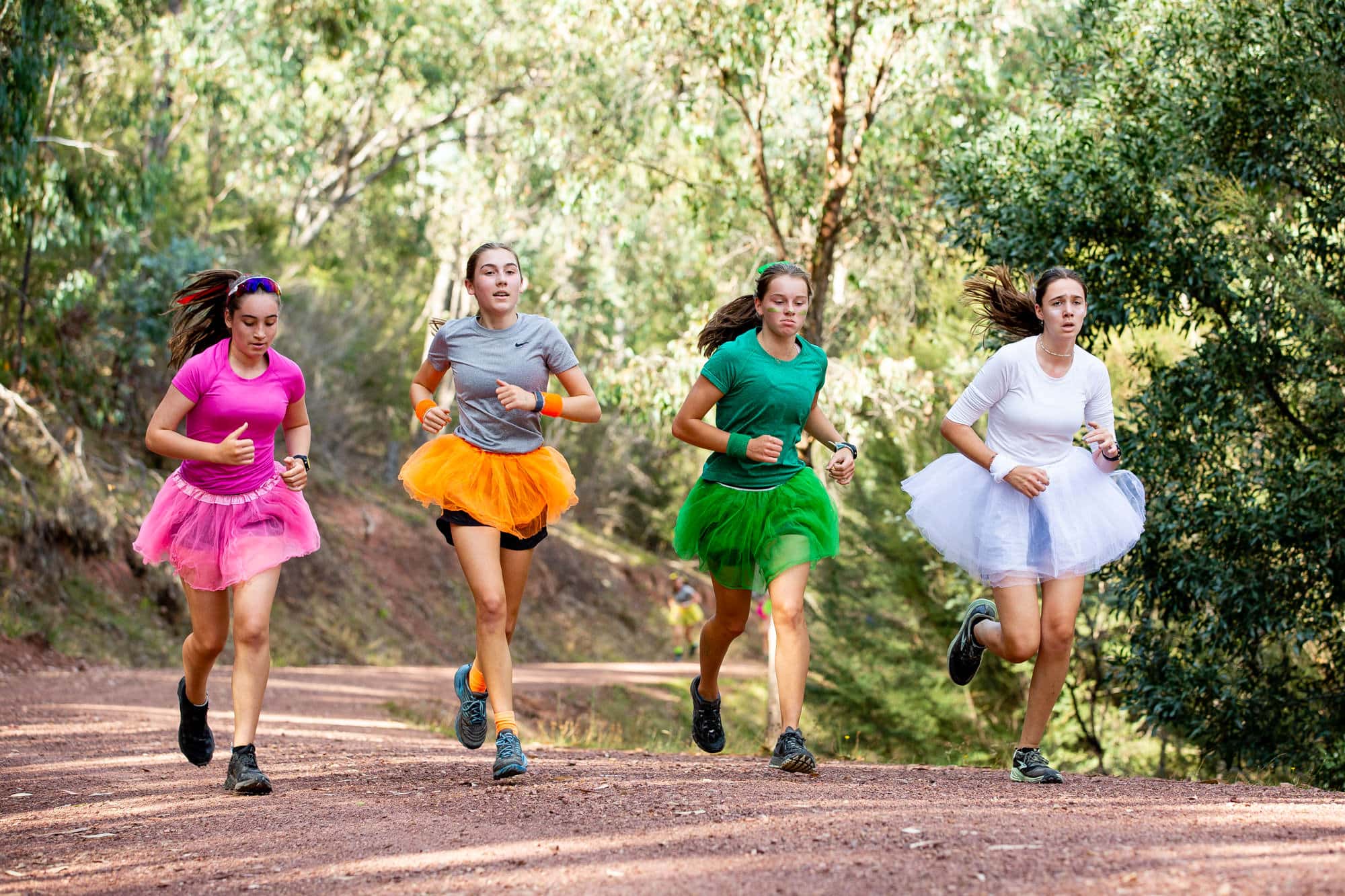
Facilities that are not only world-class but also encourage risk-taking and ownership
We are fortunate to have facilities and equipment which enable our students to participate in a wide range of physical activities. Our Ullmer Sports and Wellbeing Centre has two full-sized courts, a strength and conditioning space and sufficient spaces for yoga, spin cycling and erg training. Our students feel comfortable and confident in this environment, knowing they can participate in physical activity regardless of their current skill level. Our Junior School adventure playground has been designed to promote physical activity and risk-taking. This is a space where our girls can challenge themselves within a safe environment and be well-supported by their peers and teachers. Agility activities, an outdoor netball court and the adventure tower all provide different opportunities to be physically active.
Since COVID-19 we have observed a significant increase in the number of students actively seeking to take part in our running, swimming, strength and conditioning programs, all of which take place within this world-class facility. Having facilities of this nature affords us the opportunity to offer a wide variety of recreational activities to students that go beyond traditional sports, such as spin classes and boxercise.
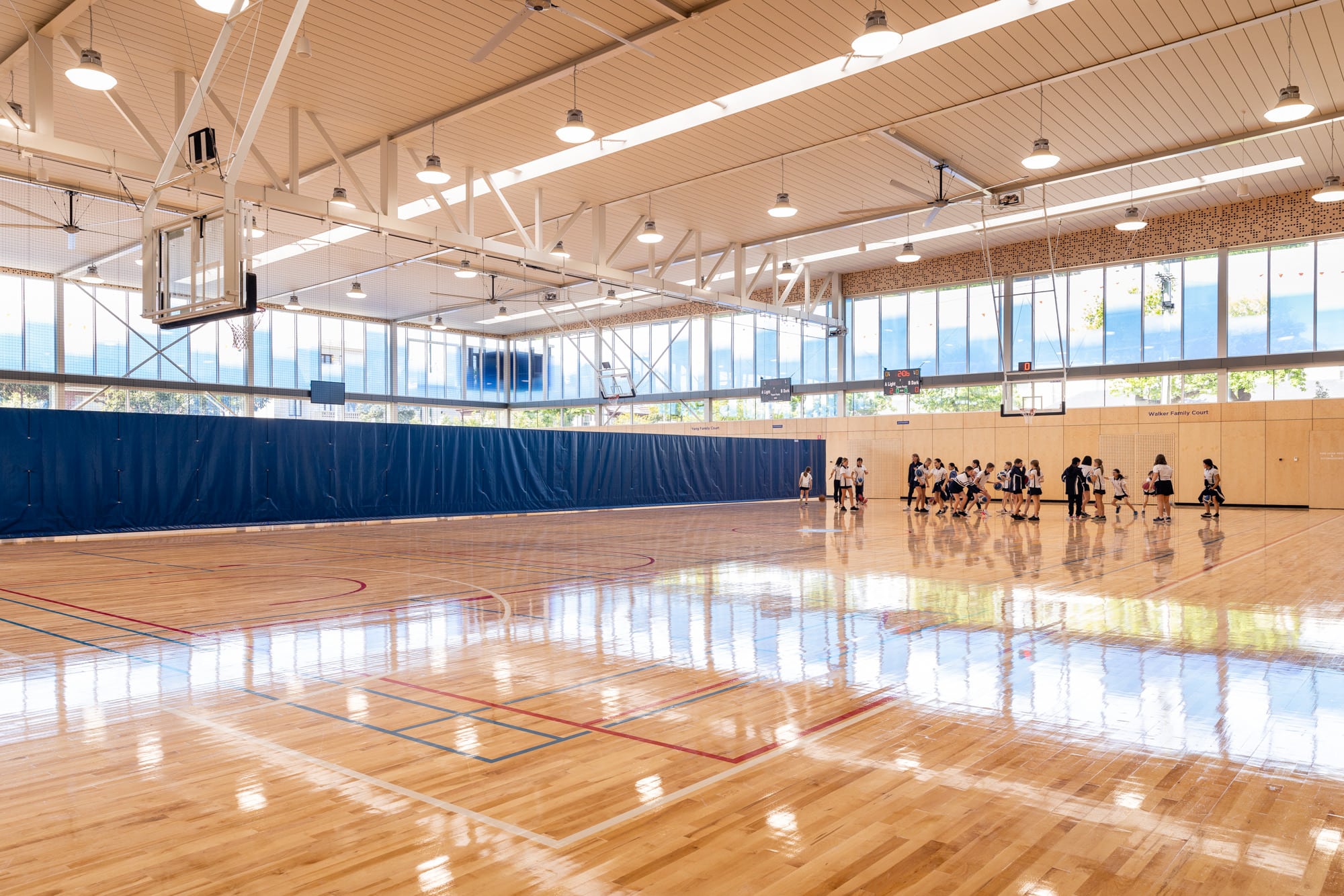
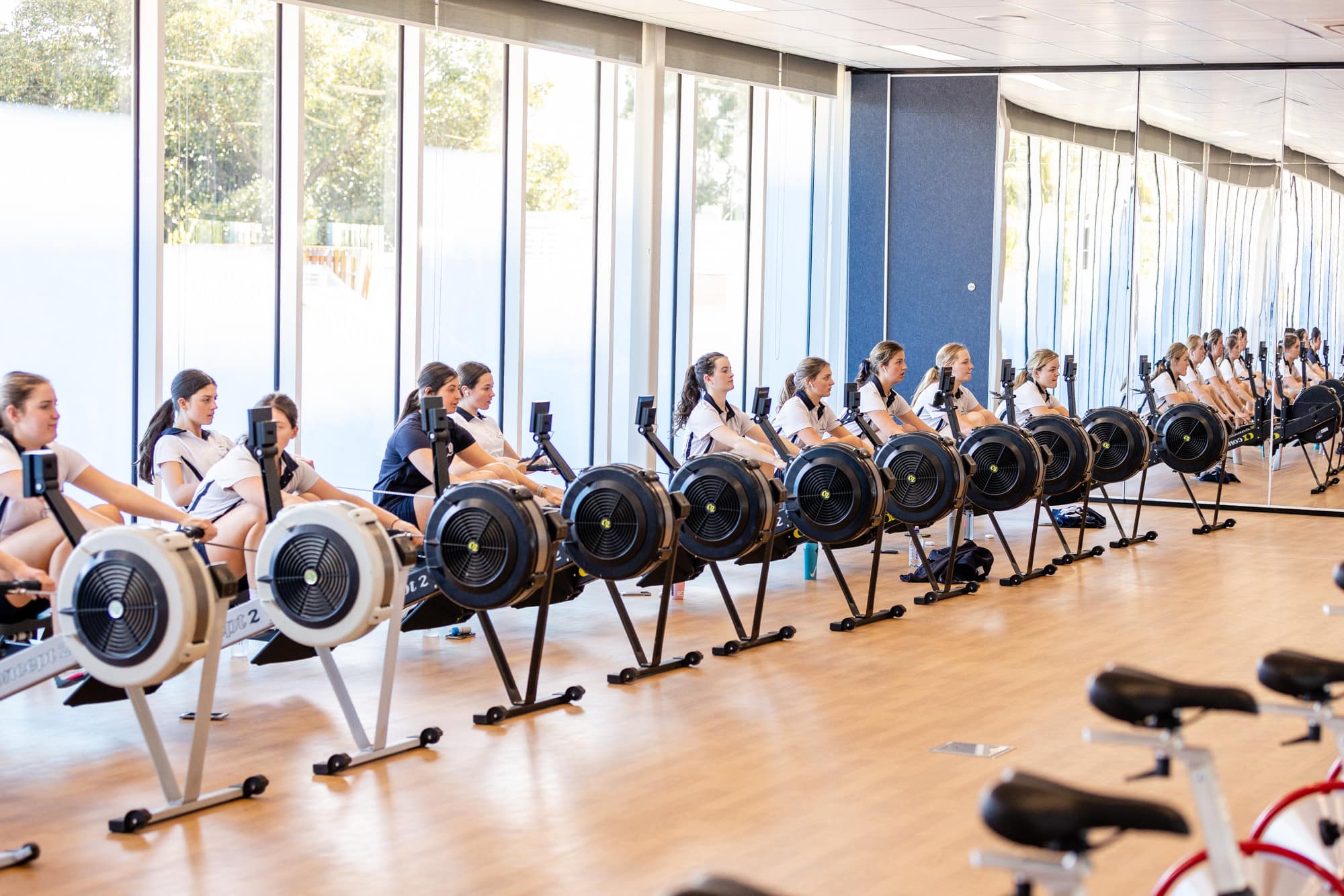
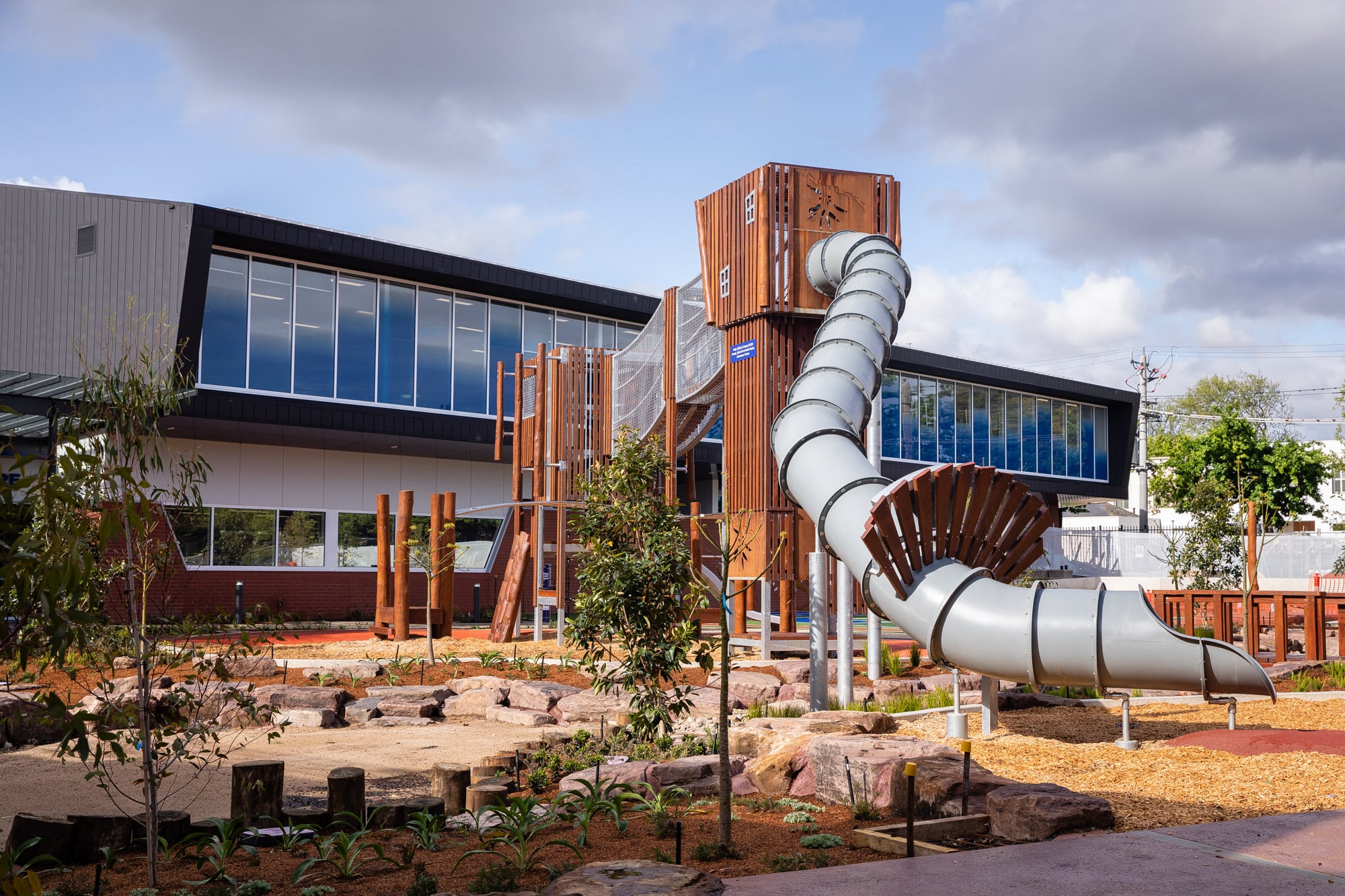
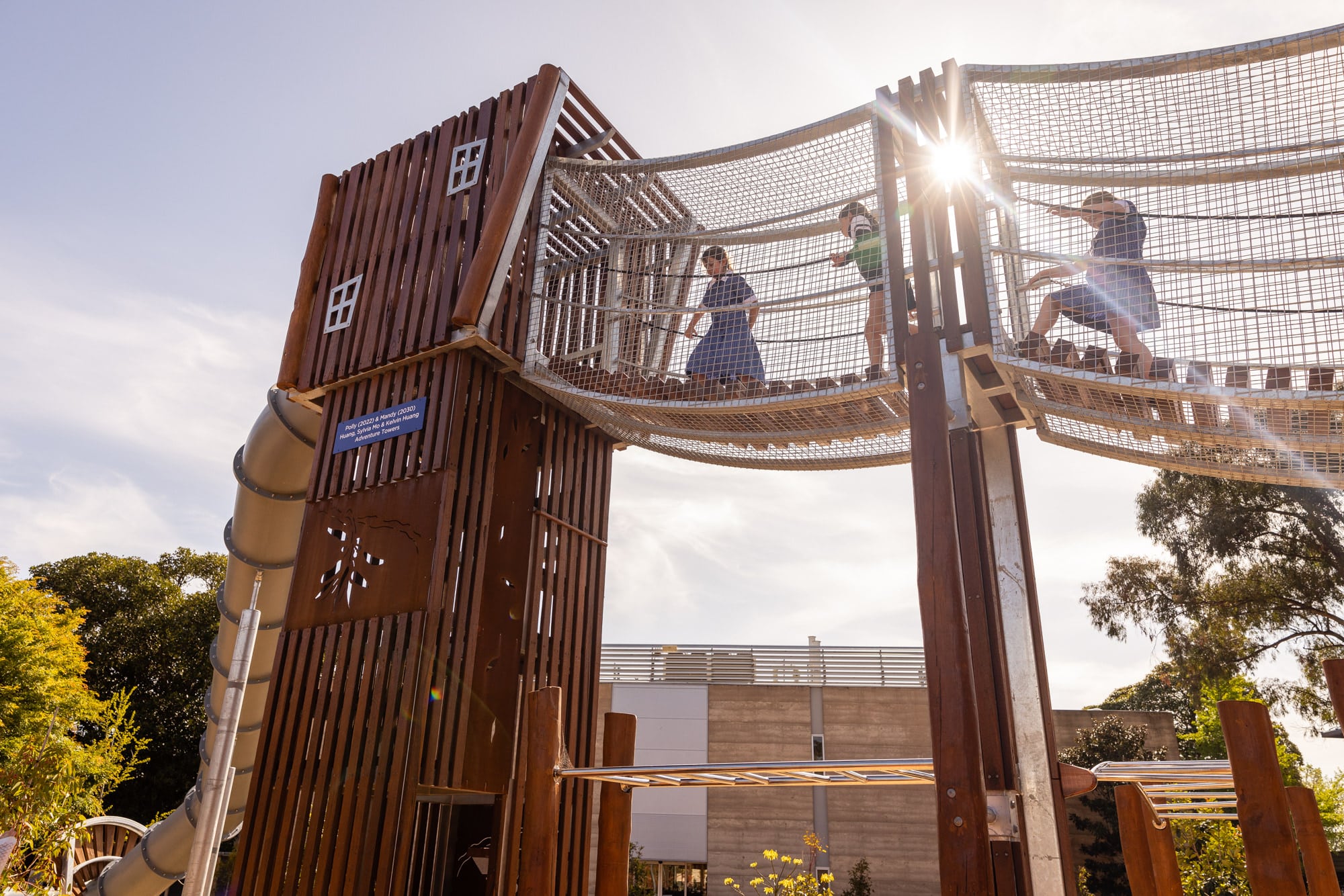
Depth of parent and alumnae community support
We have wonderful role models for our students when it comes to participation in lifelong physical activity and achievement within sport. We have alumnae who have participated at elite levels in their chosen sports such as Jessica Morrison (2010) who won gold as a member of the Australian Women’s Fours rowing team at the 2020 Tokyo Olympics. There are others who speak to their lifelong physical activity as a result of their participation in sport while at school or through their Howqua year, such as Feng-Yuan Liu (2004) who recently reflected fondly upon her experience at Lauriston with interschool sports, and how curiosity led her to build a strong foundation in nutrition, coaching and performance. We are privileged to enjoy strong support from the parent and alumnae community, offering role models and reinforcing representation, further strengthening the profound impact of motivating and inspiring young individuals to embrace physical activity.
No matter your journey or stage of life, a lifelong participation and positive mindset towards physical activity is enveloped within our values and you can see this reflected in Lauriston students, staff and community every day. Cultivating physical literacy and lifelong engagement in physical activities for girls is a nuanced endeavour encompassing physical, psychological, social and cognitive aspects. Lauriston’s model stands as an empowering paradigm that equips girls with the tools for healthy, active and fulfilling lives by nurturing physical, psychological and social wellbeing.
Susan Just, Principal & Rob Cooper, Director of Sport
SHARE THIS ON
